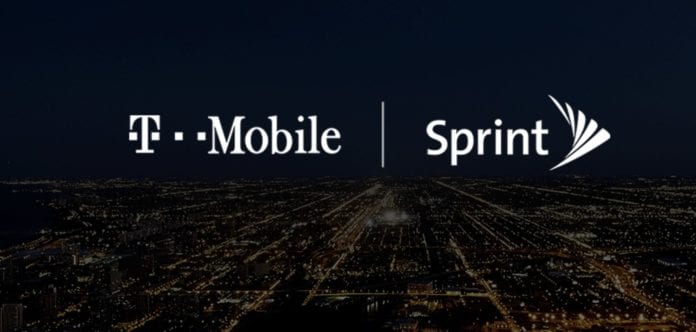Carriers commit to building out a 5G network that will cover nearly all rural Americans
T-Mobile US and Sprint have committed to building out a nationwide 5G network that will cover the vast majority of the U.S. population, divest Boost Mobile and other concessions, in a move that has won support from two Federal Communications Commissioners. In statements released today, FCC Chairman Ajit Pai and fellow Republican Commissioner Brendan Carr both have indicated that they will support the merger on the basis of the concessions that the two carriers have committed to.
“In light of the significant commitments made by T-Mobile and Sprint as well as the facts in the record to date, I believe that this transaction is in the public interest and intend to recommend to my colleagues that the FCC approve it,” Pai said. “This is a unique opportunity to speed up the deployment of 5G throughout the United States and bring much faster mobile broadband to rural Americans. We should seize this opportunity.”
According to an FCC filing by T-Mobile US and Sprint, the merged’s company’s commitments include:
-Within three years of the closing of the merger, deploying a 5G network that covers 97% of the population, rising to 99% of the U.S. population within six years. The two carriers said that within three years, they’ll cover three-fourths of the country’s population with mid-band spectrum
spectrum and 97% of the population with low-band spectrum. Nearly two-thirds of Americas will receive speeds “in excess of 100 Mbps” within three years of closing, they promised, and their build-out will, within six years, deliver download speeds of 50 Mbps or more to 99% of the population, with 90% of the population having download speeds of at least 100 Mbps.
-The companies claimed that they will “go further than any compay has before to help bridge the rural Digital Divide,” with promises to expand outdoor 5G coverage to 59.4 million rural Americans and indoor 5G coverage to 31 million rural residents. Within six years, the carriers said, they will deploy a 5G network that covers 90% of rural populations with low-band coverage and mid-band coverage of at least 66.7% of the rural population. “No other company has rural 5G deployment plans even remotely as aggressive as New T-Mobile,” they added.
-The companies said that the merged entity will, within three years, market its in-home broadband service to 9.6 million eligible households, of which at least 2.6 million are rural households; those numbers ride to 28 million eligible households and 5.6 million rural households within six years.
-Divestiture of Boost Mobile. “While [Sprint and T-Mobile US] had planned that Boost would continue to be an effective and meaningful competitor as part of the New T-Mobile portfolio of brands, [the companies] now commit to divest and sell the Boost business to remove any remaining doubts regarding the impact of the merger on prepaid wireless customers and competition,” according to the filing, with a six-year MVNO agreement “that will include wholesale rates that will meaningfully improve upon the commercial terms reflected in the most favorable of T-Mobile’s and Sprint’s three largest MVNO agreements.”
-Offering rate plans that are the same or better as existing ones, for a period of three years following the merger. “This commitment not only ensures that prices cannot go up, but that 5G comes at no extra cost,” the companies said.
-The combined company will work with Altice’s existing MVNO agreement. “New T-Mobile will not exercise any termination rights under Altice’s MVNO agreement with Sprint that might be triggered by the merger,” Sprint and T-Mobile US said. “In addition, New T-Mobile commits to engage in good faith negotiations to expand the existing Sprint/Altice agreement to the New T-Mobile 5G network.”
To ensure that it lives up to those commitments, the carriers said that they agreed to a verification and enforcement process that “will trigger severe, increasing and continuing” — but still voluntary — “contributions that will make failure prohibitively expensive and incentivize New T-Mobile to meet its commitments.”
Carr said that he supports the merger “because Americans across the country will see more competition and an accelerated buildout of fast, 5G services” and that the transaction “will strengthen competition in the U.S. wireless market and provide mobile and in-home broadband access. … The company made firm commitments to construct its network in unserved areas and serve those communities with fiber-like speeds that will be independently verified.” Carr said those commitments on rural 5G deployment and in-home broadband services are binding.
“Today’s commitments to bring 5G to rural America are verifiable and enforceable. The proposed transaction’s investment in rural 5G will help close the digital divide—this FCC’s top priority,” said Carr, adding that it will also “help the U.S. notch another win in the global race to 5G.”
“Two of the FCC’s top priorities are closing the digital divide in rural America and advancing United States leadership in 5G,” Pai said, adding that the commitments made by the two companies “would substantially advance each of these critical objectives.”
“It’s also important that the companies would suffer serious consequences if they fail to follow through on their commitments to the FCC,” Pai added. “These consequences, which could include total payments to the U.S. Treasury of billions of dollars, create a powerful incentive for the companies to meet their commitments on time.”
The two companies’ shares rose on the news. Support for the merger is still needed from one more member of the five-person commission, which is made up of three Republicans (Pai, Carr and Commissioner Michael O’Rielly) and two Democrats (Commissioners Jessican Rosenworcel and Geoffrey Starks); as well as the Department of Justice.
The remaining three FCC commissioners have not yet released statements on the merger.

